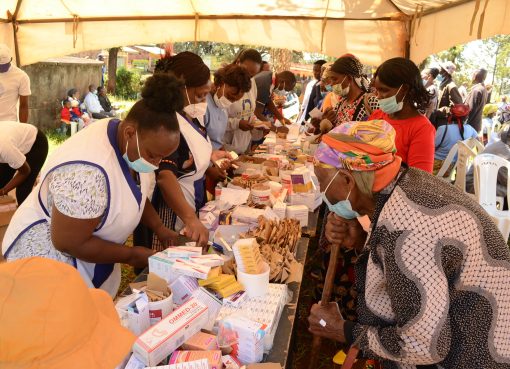Kenya has witnessed a record rate of suicide deaths and increasing burden due to substance use disorders among children and adolescents making the trend a public concern.
The situation is compounded by the pervasive culture of denial, silence and stigma that surrounds mental health, Principal Secretary Ministry of Health Susan Mochache has said.
Speaking during the opening of the Kenya Mental Health Conference at KICC, Mochache said that in Kenya, mental illnesses are a significant cause of morbidity, with an estimated 25 percent of outpatients and up to 40 percent of in-patients suffering from these conditions.
The PS noted that mental health is not just a duty of Government and Ministry of Health but for everyone and added there is need to adopt an all-inclusive, inter-sectoral, multi-stakeholder approach that is critical in addressing the social determinants of mental health.
“Persons with mental illnesses are often stereotyped, feared or shunned by the society. This negative attitude has prevented many from seeking timely care, and ultimately hindered them from realising their dreams and achieving their full potential,” she said.
Mochache urged County Governments, with technical support from the Ministry of Health to accelerate the integration of mental health services at all levels of the health system, with particular focus on primary health care, community health services, school health programmes and promotion of self-care.
The PS urged stakeholders to scale up research and surveillance on mental health to inform targeted interventions and called upon delegates in the conference to raise the priority accorded to mental health and call for efforts to increase parity of resources allocated to it with physical health.
“Evidence from cost benefit analysis indicates that for every shilling spent on mental health, five are gained in overall health and economic benefits,” the PS said .
During the launch, Kenya also launched the QualityRights initiative nationwide that will transform the mental health services.
World Health Organisation (WHO) Country representative Rudi Eggers said that the world is adopting the concept of UHC and mental health must be a part of it to ensure access to quality and affordable treatment.
“WHO has established the QualityRights initiative, a global initiative to improve the quality of care provided by mental health services and promote human rights of people with psychosocial, intellectual and cognitive disabilities,” said Eggers
The QualityRights initiative will improve quality of care and human rights in inpatient and outpatient mental health services, create community based and recovery oriented mental health and related services that respect and promote human rights.
It will also develop a movement of people with mental health conditions and psychosocial disabilities to provide mutual support, conduct advocacy and influence policy making processes as well as reform nation policies and legislation in line with international human rights standards.
Parliamentary Health Committee Chairperson Sabina Chege, said that part of the money in the supplementary budget is channeled towards the funding of the mental healthcare facilities.
“We need to look at the financing of the patients, how much is the NHIF paying for the patients and are there enough facilities and personnel to take care of the patients?” posed Chege.
She encouraged all Kenyans to talk about the mental health issue and support the victims that openly come out to seek help and refrain from stigmatizing the patients.
“As a government we need to ensure that each of the Level 5 hospitals in the country has a mental treatment section to help reach out more to the victims,” noted Sabina.
Mental health is a key component of health which is defined by the World Health Organization as a state of physical, mental and social wellbeing and not mere absence of infirmity. It estimates that about eight hundred thousand people die annually due to suicide which accounts for a suicide death every 40 seconds
By Njeri Kariuki and Wangari Ndirangu




